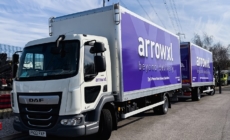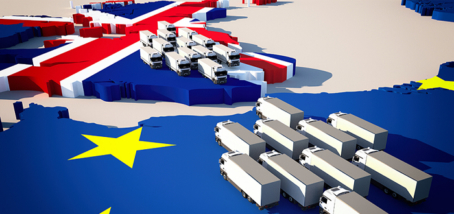-
ROSSLARE EUROPORT TARGETS HEALTH & SAFETY WITH CAMERA TELEMATICS PARTNERSHIP - 2 days ago
-
Landmark Study Reveals Wearable Robotics Significantly Boost Safety and Efficiency in Industrial Environments - July 24, 2024
-
Visku Tackle The Retail Seasonality Challenge One Pallet At A Time - July 22, 2024
-
KAMMAC AND BERGEN LOGISTICS STRENGTHEN FASHION & LIFESTYLE SERVICES IN THE UK - July 19, 2024
-
TENTBOX EXTENDS PARTNERSHIP WITH ARROWXL TO SUPPORT INCREASING DEMAND - July 17, 2024
-
The Perfume Shop improves customer journeys while driving profitability in partnership with Scurri - July 17, 2024
-
ZEROMISSION SECURES £2.3M ($3M) INVESTMENT TO ACCELERATE ELECTRIC FLEETS - July 16, 2024
-
BCMPA CELEBRATES SUCCESS OF 2024 CONFERENCE - July 15, 2024
-
Best of the Best: Jungheinrich Celebrates Triple International Award Win - July 12, 2024
-
GOPLASTICPALLETS.COM CALLS ON NEW CHANCELLOR RACHEL REEVES TO CONSIDER PLASTIC PACKAGING TAX REFORM - July 10, 2024
Logistyx Technologies, the leader in transportation management for parcel shipping, has seen a 250% increase in customers using or close to implementing break bulk services as they try to cut Brexit-related cross-border shipping costs and paperwork. Interest in break bulk has been growing since the UK referendum to leave the European Union and has continued in the weeks after the transition period ended on January 1st.
Break bulk services involve consolidating multiple orders into one big shipment to cross the border in order to reduce shipping charges and paperwork. Once on the other side, the consolidated shipment is broken down into separate shipments for individual delivery.
Logistyx helps shippers ensure their labelling and documentation can support this and has seen customers achieve savings of more than 25% on their transportation costs by switching to a break bulk service rather than sending shipments individually. For one customer, the goods are picked up from their UK facility before being shipped in bulk to the Netherlands where they are broken down for delivery across the EU.
For large shippers sending multiple items, the economics of break bulk are clear. Not only is there a cost saving on the actual shipping charge, due to lower £/kg rates on higher weight shipments, but there is a corresponding reduction in the quantity and cost of paperwork. If 50 individual shipments are consolidated into one break bulk shipment, there is only one set of paperwork to clear customs, meaning less chance of delays at the border. With carriers charging for each invoice declared at the border, the savings opportunities are clear, and having only one carrier invoice to be checked, also means less work for the finance department.
“Although break bulk services have existed for some time, we have seen a huge upswing in interest over the last two to three years, not just to achieve cost savings, which help to offset newly introduced customs duties and taxes resulting from Brexit, but to simplify customs documentation, as there is just one set of paperwork to be processed,” said Ken Fleming, President, Logistyx Technologies.
“If there is a problem at the border, having one large shipment also means you will only have one problem to solve. Multiple issues can arise if you are transporting many individual shipments, which can slow things down,” explained Fleming.

































